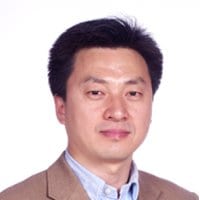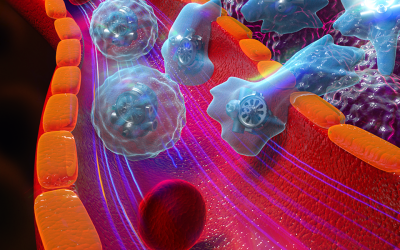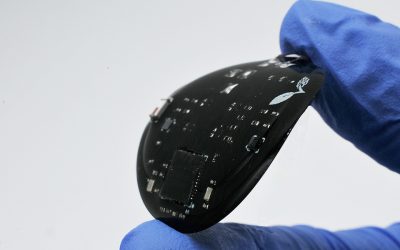 MaterialsViews had the pleasure of interviewing one of Advanced Materials’ recent most downloaded authors, Professor Yanglong Hou of Peking University. Read his review article, Synthesis, Functionalization, and Biomedical Applications of Multifunctional Magnetic Nanoparticles.
MaterialsViews had the pleasure of interviewing one of Advanced Materials’ recent most downloaded authors, Professor Yanglong Hou of Peking University. Read his review article, Synthesis, Functionalization, and Biomedical Applications of Multifunctional Magnetic Nanoparticles.
What got you interested in Materials Science as a subject, and how did you develop your current research interests?
In my Ph.D. program, I worked on the chemical design and synthesis of graphite-base composites, which inspired me to get into this area. It was clear to me that materials design is a fascinating issue.
What motivated you to choose a career in academia instead of industry?
I found more interests in academia, and am able to have opportunities to do what I dream.
What would you have done if you had not taken this career path?
I would be a professional photographer, the recording of beautiful scenes is very interesting for me.
How did you view science and scientists as a child?
Science is a fascinating subject, and I had a respectful feeling to scientists when I was a child.
What do you enjoy most about your work?
Getting exciting results; it makes me enjoy the fascinating charm of science and technology.
What influence do you believe your work will have?
Multifunctional nanomaterials has the potential to revolutionize diverse fields, such as medicine, biology, materials and energy. Although there is a long way to go, it may prove to be the great breakthrough in materials science.
Which of your publications are you most proud of? Which is your favorite piece of your own research?
Recently, we published one review article in Advanced Materials in which we summarized the progress on synthesis and functionalization of magnetic nanoparticles, and prospected the potential applications in biomedicine. I am very happy to see it because it’s also a good summary of my 10-year research in magnetic nanoscale materials. I favor applying magnetic nanoscale materials to disease early stage diagnosis and treatment, and recover health to humans.
What are your short and long term plans?
We currently aim to develop nanoscale materials with multifunctionalities, and we expect that this kind of multifunctional materials can be applied in disease diagnosis and therapy system, and energy fields in the future.
What do you see as the biggest challenges facing the scientific community, and the rewards and outcomes of solving such challenges?
Sustainable development is very important for us, “Only One Earth”. Scientists should make more contributions in this critical mission. All people will benefit from a sustainable living environment.
What do you like to do to in your spare time?
In my spare time, I enjoy running and reading.
What do you see as the most important scientific achievement of the last 100 years?
The discovery of the DNA structure.
What do you think are the greatest challenges facing scientists at the moment?
The subject has been emerging as interdisciplinary, so a scientist needs to extend his/her knowledge and very often collaborate with scientists from diverse fields; however, challenges embed opportunities.
Where do you see the field of materials science in 10 years time?
Materials science will be a more interdisciplinary subject, not only including physics and chemistry, but also extending to biology, medicine, nanotechnology, even smart robots.
Research work will exhibit more intelligent and green concepts, and produce amazing materials with smart functionalities.
Finally, what should scientists aspire to?
To make more contributions to the sustainable development of humans, for example, to produce clean energy and advanced nanobiotechnology.
Yanglong Hou received his Ph.D. in Materials Science from Harbin Institute of Technology (China) in 2000. After a short post-doctoral training at Peking University, he was a JSPS foreign special researcher at University of Tokyo from 2002 to 2005, and a postdoctoral researcher at Brown University from 2005 to 2007. He joined the Peking University in 2007, where he is now a Professor of Materials Science. His research interests include the design and chemical synthesis of functional nanoparticles, and their biomedical and energy related applications.
Among his numerous academic awards are the JSPS Fellow Award in 2002, the Outstanding “Rising Star” of Science & Technology Award in 2008, the New Century Talent Award from the Ministry of Education of China, the Outstanding Young Scholar from the Yok Ying Tung Foundation, the Exxonmobil Outstanding Faculty Award, the Techcomp-Hitachi Outstanding Faculty Award and the Beijing Outstanding Young Scholar in 2009.

















